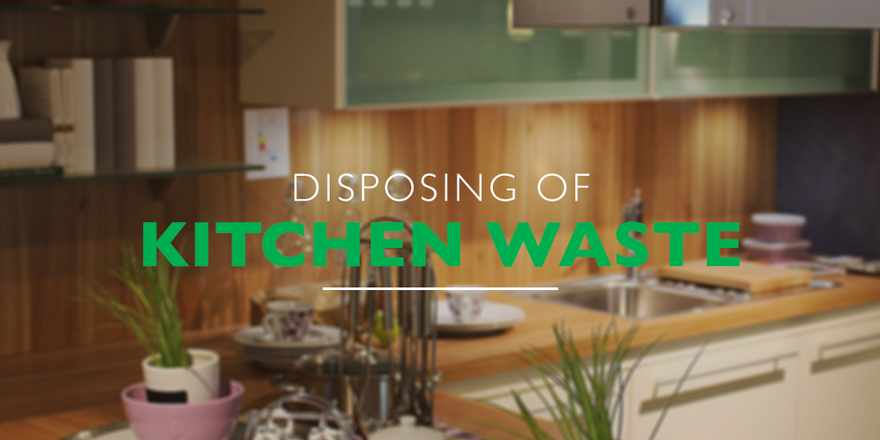How to dispose of all kitchen waste

The average household produces more than a tonne of waste every year, most of which comes directly from the kitchen. This ranges from the food we use to the packaging and recycling that is left over afterwards, and it soon all mounts up.
It doesn’t stop there though; our kitchens are full of appliances and electronic devices that eventually break (which need proper disposing), and the average kitchen refit will produce a fair bit of waste as well.
So here are a few suggestions of how to reduce and properly dispose of all the waste that your kitchen will produce.
FOOD WASTE
It’s quite sobering to think about, the fact that nearly one third of all food produced in the world each year ends up as waste. In Britain alone, this accounts for some 6.7 million tonnes of food, which either never makes it off the shelves, or is simply unused and thrown away. This unfortunately means that a lot of food ends up rotting away in a landfill, causing it to produce harmful greenhouse gases such as methane.
And it’s not only the environmental implications that are cause for concern; as it’s said that the average cost of food waste per household is around £250-£400 per year. So if we can keep any unnecessary wastage down, not only do we save some money, we’re also doing some good for the environment.
REDUCING WASTAGE
Of course, the best means of reducing food waste is to simply not produce any in the first place, so here are a few suggestions worth thinking about:
1) PLAN AHEAD BEFORE DOING YOUR FOOD SHOPPING
Thinking forward before hitting the shops means less impulse buying, as well as making sure that what you do buy is definitely going to be used. Plan meals for the week ahead, and you might find that less gets thrown away.
2) STORING FOODS PROPERLY
All food packaging will feature some form of storage guideline, and by sticking to those it means that nothing goes off unnecessarily. Some of the most common storage mistakes are to keep bread or onions in the fridge, and easy tricks like freezing cheese, raw meat and cooked meals can mean you’ve got far longer to eat them.
3) USING LEFTOVERS IN OTHER MEALS
You’ve had a lovely meal, but couldn’t quite mange it all, so as you’re staring down at the leftovers you should ask yourself “could this be used in something else?” There are lots of recipes and guides online that show you what you can do with leftovers, and again, this all helps with reducing waste.
4) COMPOSTING
Some food waste is simply unavoidable (plus you need to do something with all the peelings and useless bits and pieces), and that’s where some good old-fashioned composting comes in. Composting will turn any kitchen waste into valuable food for your garden, with virtually zero running costs. Applying compost to your garden soil adds some fertilisation, soil structure and moisture retention, and it can even reduce weed growth - so it’s well worth your time.
You can use any organic matter for this (including green waste from the garden), and some district councils will provide a compost bin (or have a go and building one yourself).
FOR EVERYTHING ELSE
For everything besides food that comes out of the kitchen, the same rule applies, the best solution is to avoid producing waste in the first place, but in truth, the reality of it is that it’s often unavoidable.
Waste such as newspapers, food packaging, cardboard and plastics can often be recycled, and in doing so, you can really help to reduce the demand on landfills.
Even larger items such as old appliances that either no longer work, or are being replaced, can be given away to charities, sold on or repaired, or collected by the council. Just make sure the your first response when finished with something isn’t to chuck it straight in the bin.
One last thing to do with kitchen waste is the kitchen itself! Say you’re treating yourself to a shiny new kitchen, but you’re unsure how to best dispose of the old one, HIPPO have the answer! A HIPPOSKIP will easily fit an entire kitchen, and it can be collected within 5 working days of you making your order.
On average, over 90% of what a HIPPOBAG removes is recycled. This means that all the old fittings, cupboards and appliances (and yes, even the kitchen sink) will be responsibly disposed of as far as possible.
So it’s little tips like this that can make all the difference in dealing with all the waste that kitchens produce.

